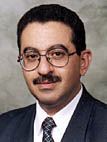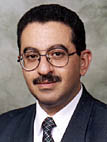
SEDU Goes in Full Gear [Archives:1998/34/Business & Economy]
August 24 1998

To find out more about this topic, Ismail Al-Ghabiry of Yemen Times talked to Mr. Abdulmalik Al-Iryani, the Manager of the Small Enterprise Development Unit (SEDU), and filed the following interview:
Q: What do we mean by “small enterprises”?
A: Internationally different definitions are being used. In some countries an enterprise is considered as ” small” when it has a maximum of 5 employees. In other cases one looks at the amount of total investment in the small company and considers less than US$ 10,000 total investment as small. The SEDU is rather flexible on this issue. We will not finance projects where the total investment cost exceeds the equivalent of US$ 200,000 (YR 27 million). Smaller projects we will generally accept if they are good projects.
We have 2 loan programs:
1- Micro Lending Program, with a minimum loan size of YR 15,000 and maximum loan size of YR 50,000.
2- Small Lending Program, with a minimum loan size of YR 50,000 to a maximum of YR 4 billion.
Q: What is SEDU’s background?
A: SEDU started operations in 1990 as a small independent unit with support from the Netherlands government and the United Nations.
Q: What kind of services does SEDU provide?
A: One service is the Micro Lending Program, where the minimum loan size is YR 15,000 and the maximum loan size YR 50,000. However, it costs a lot of time to explain banking business to people who are unfamiliar with lending.
We are preparing to replace the individual micro scheme with a new scheme where we will work together with NGOs, business associations or other organizations. Such organizations can help SEDU with the formation of groups of very small entrepreneurs and provide them with training and assist in supervision. SEDU will then come in with individual loans of YR 15,000 to 50,000 to members of a trained group.
There is also the Small Lending Program, with a minimum loan size of YR 50,000 to a maximum of YR 4 million. This is SEDU’s basic lending program, where we assist small entrepreneurs who cannot get loans from normal commercial banks.
SEDU staff assists its clients with the loan application and the formulation of the entrepreneur’s business plan, but we hope to find other organizations or small consultancy firms in the private sector who can provide this assistance to entrepreneurs.
Q: What is SEDU’s relation with NGOs?
A: In the past there was little contact with NGOs and other such organizations. In view of our new micro lending program we have started discussions with a few organizations and hope to enlarge this effort. We are seeking contact with strong NGOs, business associations or other well and financially healthy organizations with whom we want to work together, aiming to provide micro loans to very small entrepreneurs.
We will use models that have been used successfully in other countries, being careful to adjust these to Yemeni circumstances. SEDU will provide the loans and our partner organization will assist in the formation, training and supervision of the groups. In line with the positive experience elsewhere, we will start this program with women entrepreneurs in particular. We want to emphasize, however, that we are talking about providing loans to entrepreneurs which must be repaid. We are not talking about hand-outs to women who want to feed their children. There are other organizations who are working in the social field.
Q: What are the number and amount of loans already given by the SEDU?
A: At the end of 1997, SEDU had over 600 loans outstanding to a value of YR 252 million (20% more than the year before).
In 1997 SEDU disbursed 216 loans to a value of YR 107 million. Of the 216 loans, 34% went to women entrepreneurs and 11% to returning immigrants. The distribution per loan size in the same year shows 50% of the number of loans were micro loans below YR 50,000; 29% were loans from YR 51,000 to YR 500,000 and 21% above YR 500,000.
Q: Who is financing SEDU?
A: SEDU is receiving support from the Netherlands government and the United Nations and is to a small degree funding its activities from its own resources. As donors insist on SEDU moving towards self sufficiency and profitability, we must aim at generating more income ourselves, whilest strictly controlling our cost. In the longer term SEDU should also generate its own funds for on-lending to its customers.
Q: What are the SEDU’s sectoral lending activities?
A: In 1997 SEDU has been providing 26% of the number of loans to the sewing & knitting sector, 11% to the food & beverages sector, 11% to maintenance workshops, 5% to the wood sector and other loans to a wide variety of activities.
Q: What sort of difficulties does the SEDU face?
A: Many loan applicants are not quite familiar with the lending process and require a substantial amount of time in explaining lending procedures and assistance with their loan application. The tendency of some Yemenis to be impatient and who expect that they can come in and walk out again with money in their pockets, sometimes requires some explanation. It would therefore be of considerable help if other projects could be created to provide business advisory services to small entrepreneurs. We understand that with German assistance such a project may be forthcoming. We are looking forward to the starting up of this and possibly other such initiatives.
Another area of concern is the slow progress in case legal action for loan recovery is required.

A: In March of this year, SEDU has opened its first branch office in Aden and hopes to open a second office in Hodeida this month. We hope to open another branch office later this year or in early 1999 in Mukallah. The purpose is to make it easier for our clients to come to SEDU without having to travel to Sanaa. At the same time this will make it easier and cheaper for SEDU staff to visit their projects.
As said before we want to re-introduce our micro lending program in co-operation with well-organized NGOs and other organizations.
With Dutch assistance we are giving a fresh impetus to staff training, reviewing of our own organization and procedures and improving our computerized administration system. We are very happy with the resumption of the Dutch assistance and the financial support of the United Nations.
We are also thinking of taking the process of decentralization a step further with the opening of a branch office in Taiz. Another thought is the creation of many small offices in places like Dhamar, Shibam, Hajjah, Zabid, Ibb, Lahij, etc, provided we think sufficient business can be generated in those places to make sure offices are profitable.
Q: What is needed for the future?
A: We would like to see more emphasis on the creation of projects that can provide business advisory services to small entrepreneurs or assistance to small private consultancy firms who want to become active in this field.
SEDU is happy with current donor support, but may have difficulty in financing the infrastructure needs for a further branch office in Taiz and particularly the setting up of a network of small offices throughout the country. This latter effort will also require a massive training effort of new staff. We can provide the training, but employing and training staff who will be unproductive for some 6 months represents a considerable expense for which donor support would be most welcome.
Finally we are discussing our own legal status. If we would become more independent from the government, we would be able to put up our own staff policies, be more independent with regard to our operations and procedures and would possibly be able to attract foreign partners. If we want to survive in the future we should be able to set our own policies, work on a commercial basis and be a profitable organization in our own right. Then in the future we can assist small entrepreneurs independently on the basis of Yemeni resources without the need of outside donor support.
——
[archive-e:34-v:1998-y:1998-d:1998-08-24-p:./1998/iss34/b&e.htm]


